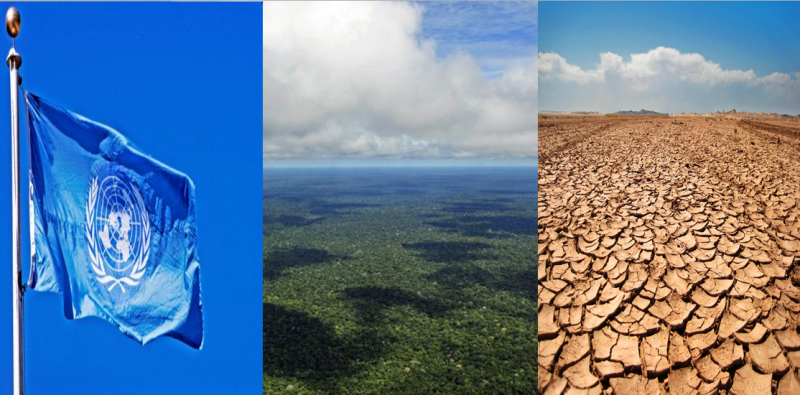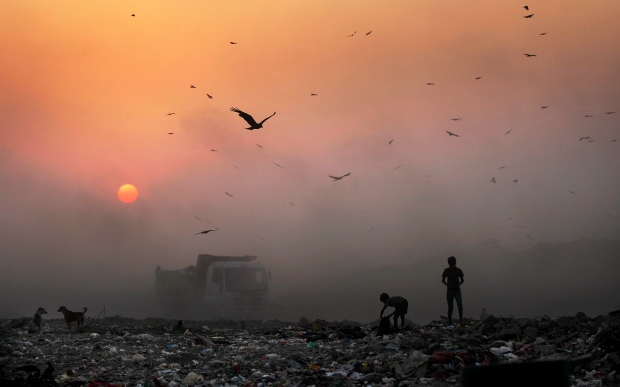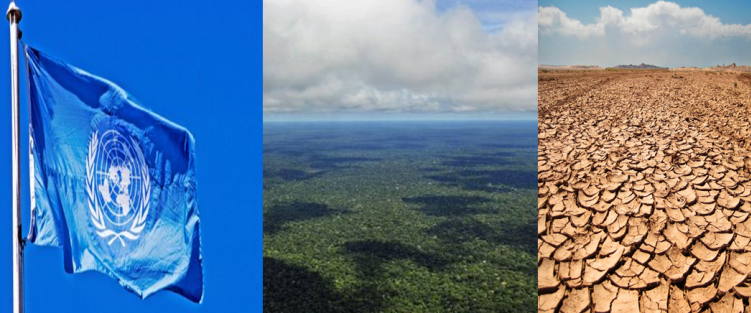ENVIRONMENT
Nature is of great significance. Human denial of ethical orientation to nature has led to environmental crisis.
Dr.Ruchi Shree is Assistant Professor, Department of Political Science, Janki Devi Memorial College, University of Delhi.
We are living in a world which is changing at a fast pace, especially in terms of technological advancements and environmental degradation. In one or the other way, these two factors are affecting the lives of almost every human being across the globe. Whether there is a link between these factors or not remains debatable. However, rather than going into that debate, let us explore the recent declaration by the United Nations recognition of right to healthy environment. What is the viability of such a declaration? Given the fact of climate change leading to rapid decline in the quality of environment, it is indeed a welcome move/step. This declaration is a significant development and many other declarations held previously set its background.
The first International Conference of Human Environment held at Stockholm in 1972 established the interlinkage between human rights, health and environment. To illustrate, the principle 1 of this declaration says ‘man has the fundamental right to freedom, equality and adequate conditions of life, in an environment of a quality that permits a life of dignity and well-being.’ Environmental protection is a pre-condition to the enjoyment of internationally recognized human rights.

In 2001, in the 57th Session of the Commission on Human Rights, Klaus Toepfer, Executive Director of the United Nations Environment Programme (UNEP), takes this approach in his statement: “Human rights cannot be secured in a degraded or polluted environment. The fundamental right to life is threatened by soil degradation and deforestation and by exposures to toxic chemicals, hazardous wastes and contaminated drinking water”.
Even the Male Declaration on the Human Dimensions of Global Climate Change in 2007 proclaimed that “climate change has clear and immediate implications on the full enjoyment of human rights”. In 2009, Office of the High Commissioner on Human Rights (OHCHR) also agreed to it by saying that climate change threatened the enjoyment of human rights. So, the link between human rights and environmental degradation is well established much before the recent UN declaration of right to healthy environment.
In fact, the rights discourse sometimes seems to be much over-hyped as well. For instance, take the case of much talked about ‘right to water’. What does it hold? Is it about the state to ensure water to everyone? If so, how is it going to happen, on individual basis or the household or on the community basis? If we have made most of our rivers dirty and the groundwater is depleting fast due to over-exploitation, then what is the right to water going to offer us?
Similarly, looking at this recent declaration should not make us feel overwhelmed. After all, we already have numerous similar declarations taking us nowhere. Even the Universal Declaration of Human Rights in 1948 which completes 70 years now has not been able to have its implementation worldwide. The point I want to make is that although human rights discourse is promising one and empowers the human beings but it also has a certain biasness towards Anthropocene. We need to recognize that the very fact of environmental degradation has much to do with human actions. Be it excessive industrialization, urbanization or the drive to a certain kind of modernity informed by consumerism has led to what we see around us in the form of polluted air and water.
It is the time for course correction or to say feel responsible about all that has gone wrong in the name of modernity and development. The way it has led to a monoculture of language (read it English), economic system (capitalism), polity (democracy) has its far reaching consequences. So, what happens after the UN declaration? The countries who are members of UN are supposed to ratify it and then implement it. But, are not there already too many declarations on environment ever since the 1972 declaration on Human Environment in 1972. All sorts of measures for the protection of environment, to stop the air pollution to stop desertification, and for the conservation of seas and many others have not taken us far in terms of concrete achievements.

I would like to bring your attention to two prominent reasons of environmental degradation. It is the rising human population with its need of food, water and shelter. It is the mad drive of capitalism which has long been on a mission to convert the nature into natural resource. For example, just few months back, the rise in the level of air pollution in Delhi led to air purifier for houses as a new product in the market. Along with masks, the air purifiers got much attention from the people. Air purifier may become another household item in near future, after all, most of us are using water purifier these days but there was no such thing just twenty years back or so. Market as an actor is so tactful in shaping the human desires. It is not only converting everything into a saleable commodity but also the competitive drive to acquire more and more guides the individuals as well as the MNCs. We all are aware of the excessive mining of all kinds, be it minerals or sand or even water. Similarly, we also know about the rivers drying up and the rivers being polluted and so on.
In the recent age the cases of water scarcity viz. Sao Polo city of South Africa and many others are alarming ones. A large number of migration is taking place due to shortage of water in different parts of the world. We must remember that the technological advancement has not been able to give us a substitute for clean water or clean air what constitutes the environment around us. May be more than rights, it is time to think about the duties. I am reminded of the words used by Anupam Mishra (noted Gandhian environmentalist), “after all, why do we expect the state to do everything for us? In the past, we had self-sufficient sustainable societies much prior to the advent of modern nation-state. People had traditional knowledge and wisdom to conserve water. What have we gained in the last two hundred years or so in the name of modernity?”[In one of the many conversations with the author.] Needless to say that environmental degradation is likely to pose new challenges to us and we do need to find ways for the survival of humanity.
***













